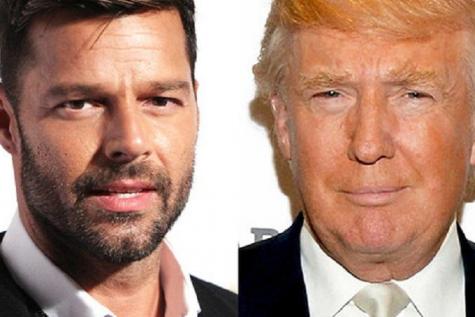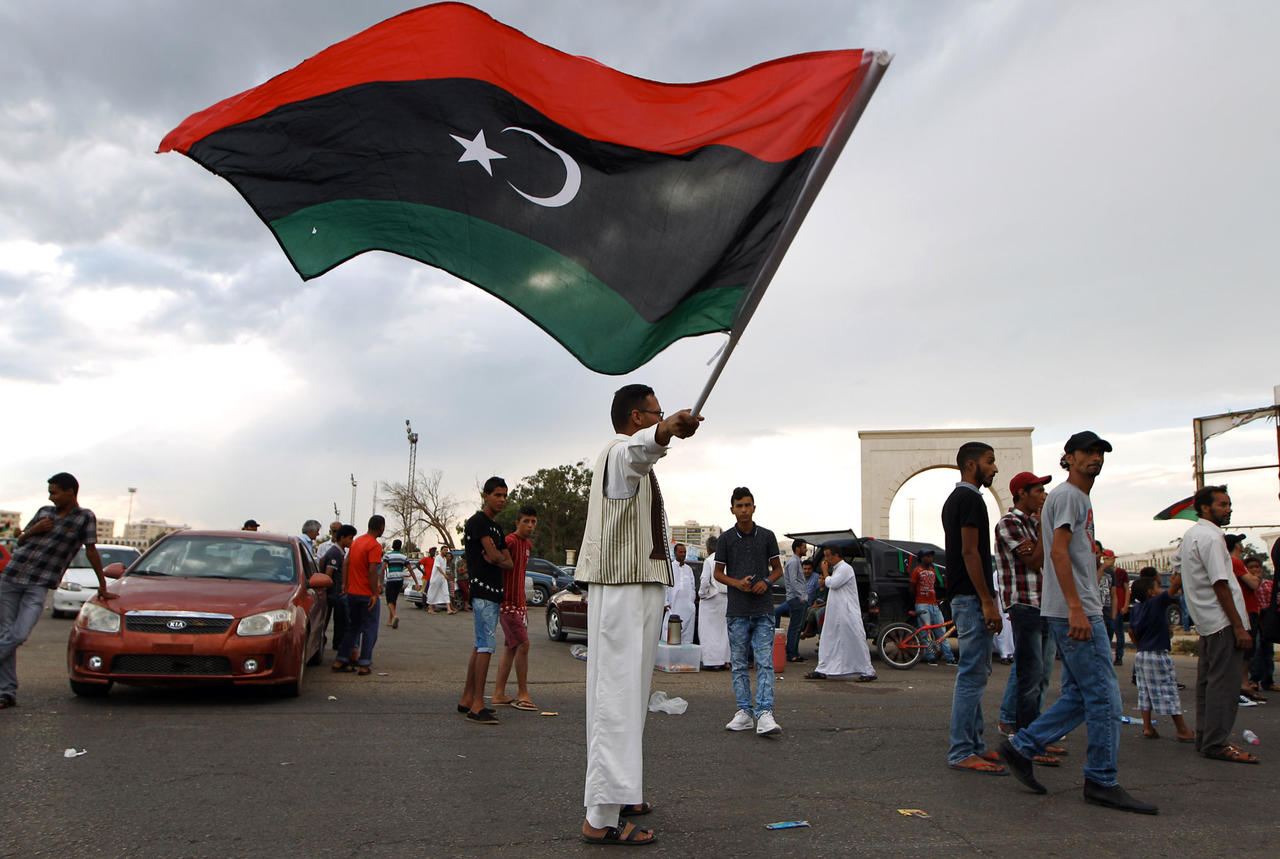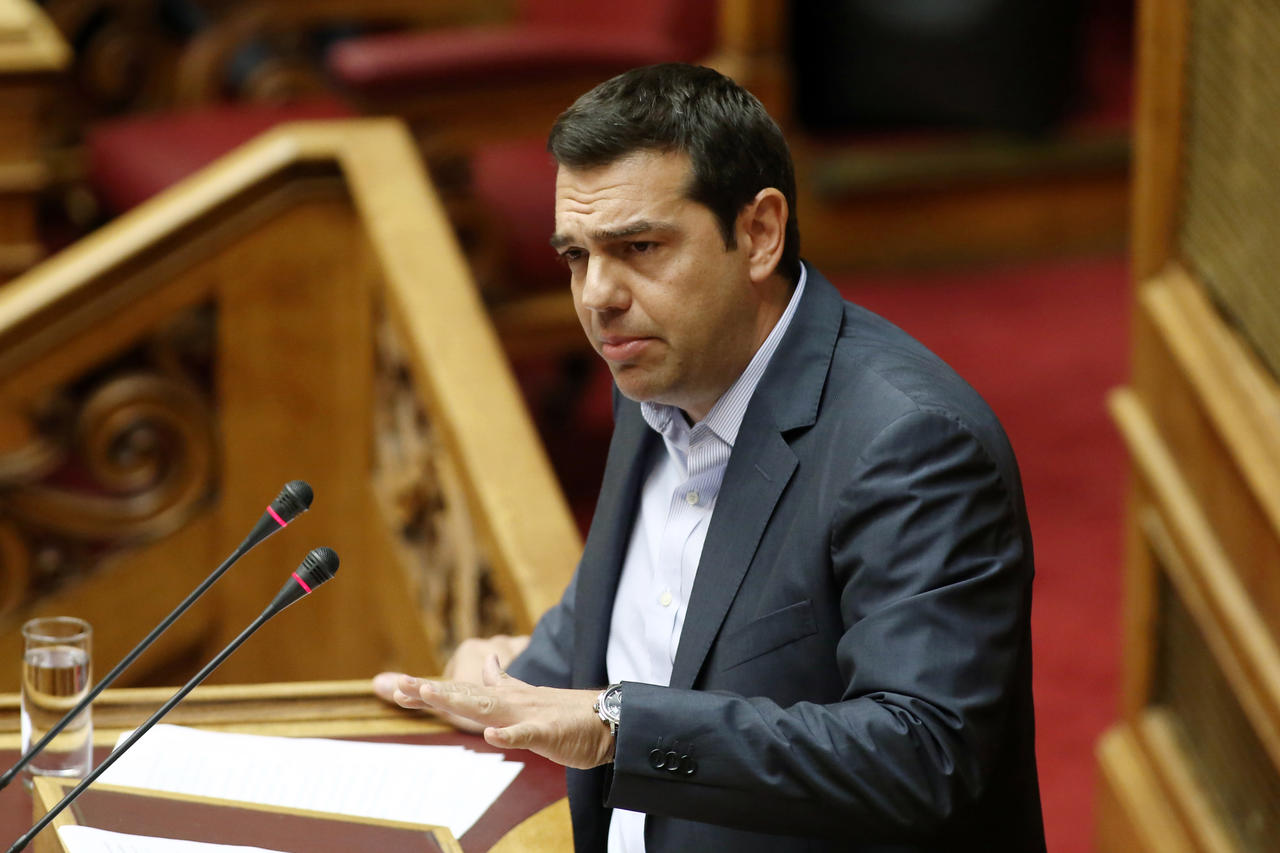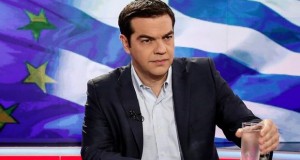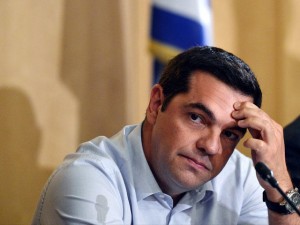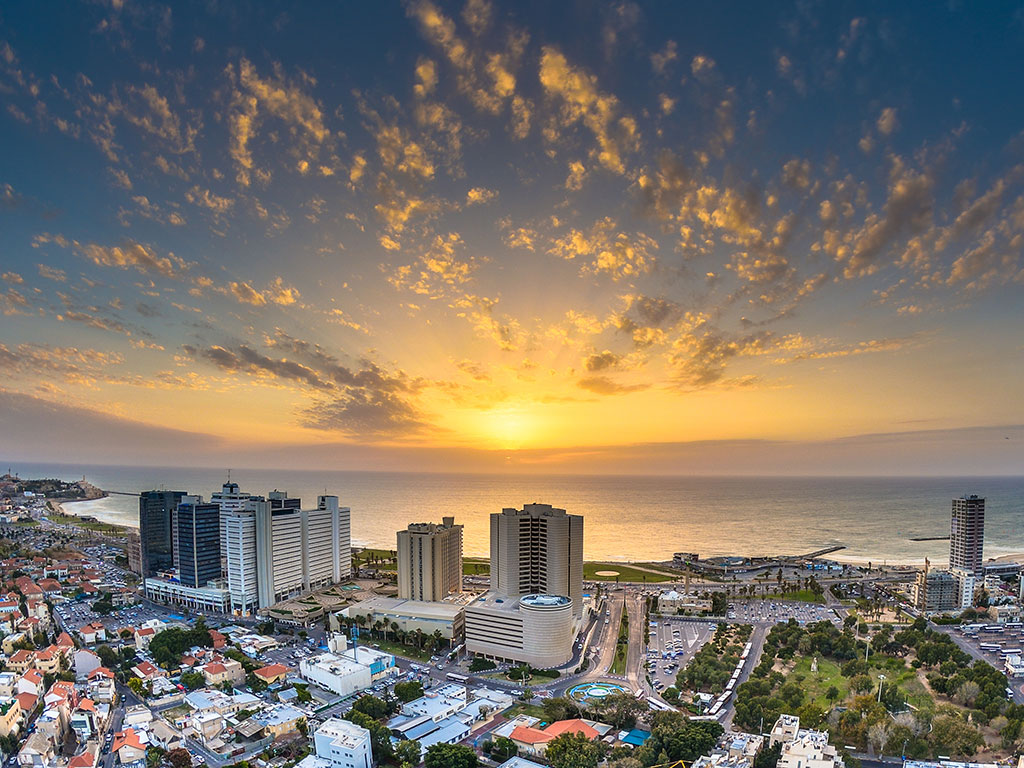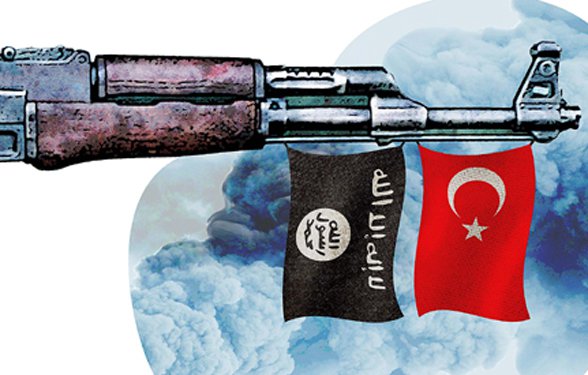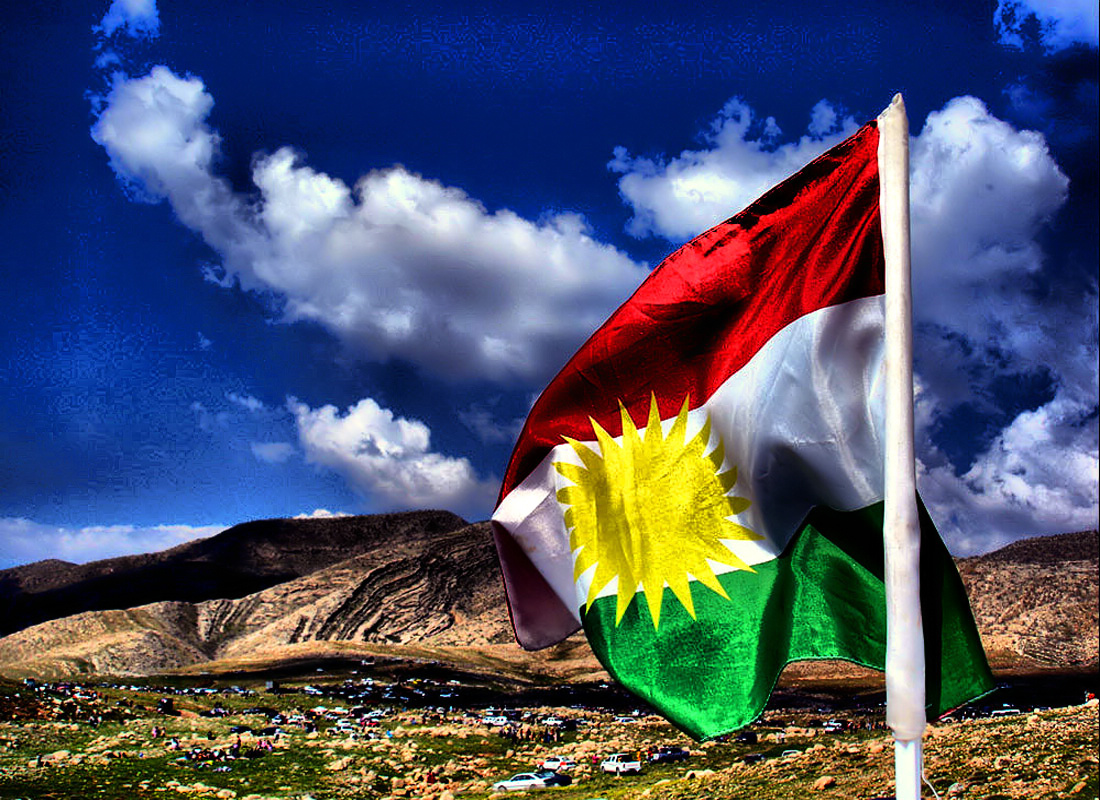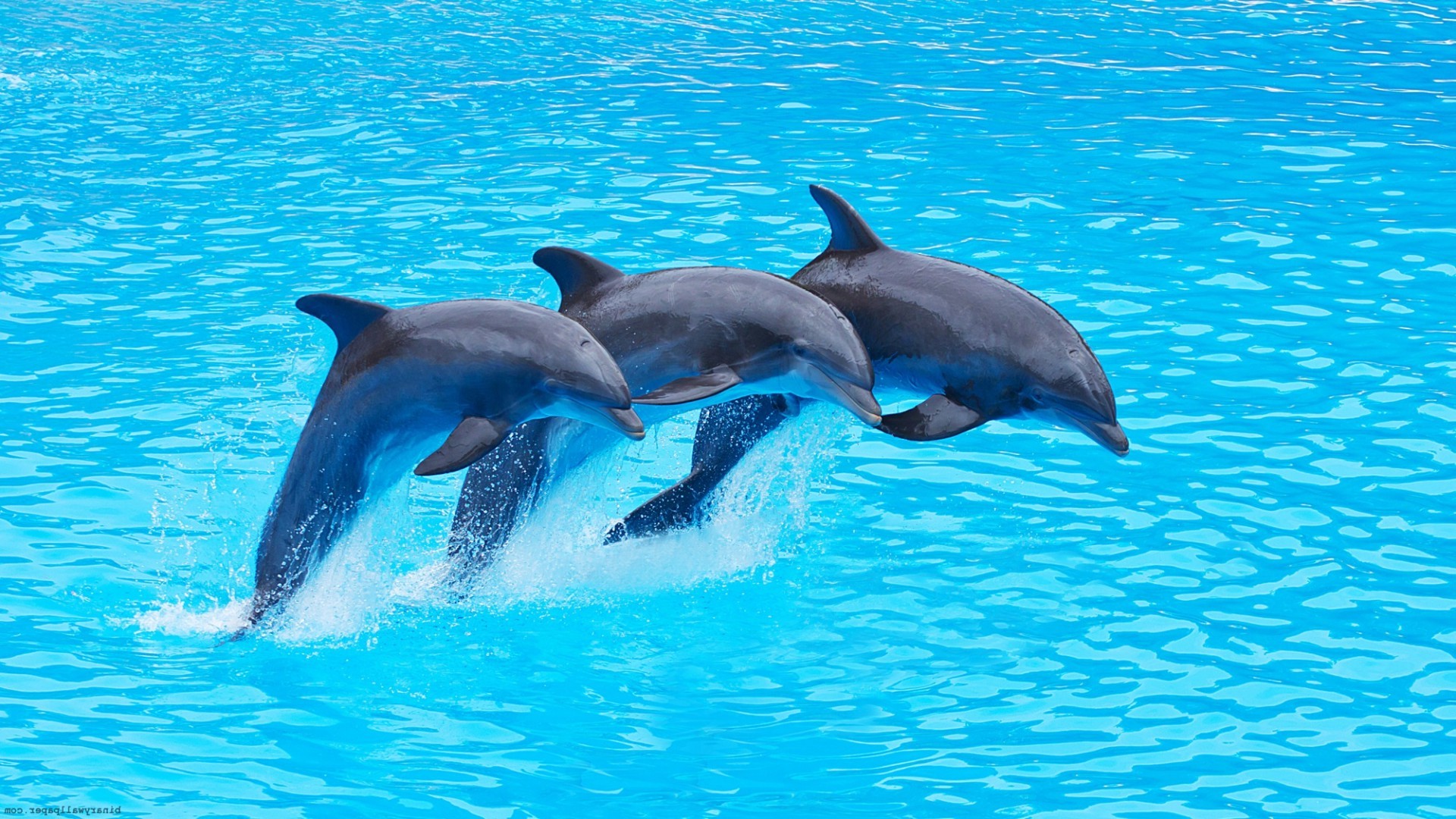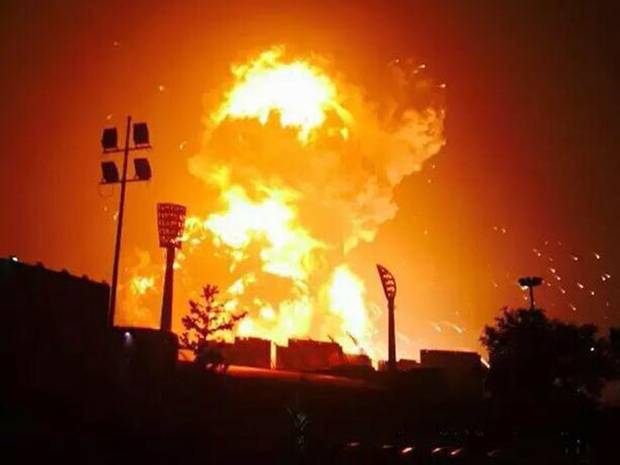The Kurds were The great losers in the breakup of the Ottoman empire could be the winners , since Syria and Iraq are splits up by Civil wars , with no longer effective governments. Denied self-rule after the First World War, Kurds are the largest ethnic group in the world without their own state.
A Kurdish state would raise the hopes of millions of Kurds , change the geopolitics of the region and challenge the integrity of the existing states writes David Allouche , a prominent expert of the Middle East.
People are now seriously talking about the break up of Iraq and Syria. Nobody ( except perhaps Israel, which would be happy to have a reliable regional ally) openly support this idea, but what was just a possibility is increasingly looking like a probability.
While the Western part of Iraq has come under the control of ISIS , also known as “The Islamic State”, this is recognized and accepted by no one and it may be ephemeral.
Indeed, the self-declared Islamic state may only last few years , just like the Taliban’s Emirate in Afghanistan. However the emergence of an independent Kurdish State by the Turkish Regional Government’s secession from Iraq could have more profound consequences for the region.
The Kurds struggled for decades in order to obtain self-determination in each of the four nation-states they were split-in after the end of the Ottoman Empire : Turkey, Iraq, Iran and Syria.
The independence for the first time of a Kurdish state would raise the hopes of millions of Kurds , be a major change to the geopolitics of the region and constitute a challenge to the integrity of the existing states.
Would this be a step forward for the Kurdish people though? Will it bring freedom closer?
Who exactly are the Kurds?
Nations do not simply exist, they are created. This truth is more obvious in the Middle East as the nations and states are so new, and many have never managed to actually cohere, their invention a failure.
The valley of Mesopotamia and its mighty rivers, the Tigris and Euphrates, is one of the cradles of civilization. To its north and East though it is bounded by great mountain ranges, the Zagros mountains, the Caucuses and the Anatolian plateau. The high peaks, deep valleys and plateaus have provided a home and a refuge to a kaleidoscope of communities speaking a variety of languages (Kurdish, Turkish, Turkoman, Armenian, Farsi, Azeri, Arabic) and following different religious confessions (Sunni Islam, Shia Islam, Muslim Sufi orders, different varieties of Christianity, Yazidim, Zoroastrianism).
One of these peoples is the Kurds. Possibly descending from the ancient Medes, their language is Indo-European and related to the other Iranian languages, Farsi, Pashto and Tajik. This group of languages is fundamentally different from those of their neighbours, Turkish and Arabic, but share many words in common.
What is often referred to as “Kurdish” is not a single language however, it is a group of closely related languages. The most spoken is Kurmanji which predominates in Turkey and Sorani which is spoken in Iraq. They not mutually comprehensible and are written in different scripts (Latin and Arabic respectively)
The Kurds also follow a variety of religions. Most are Sunni Muslims with about a third following Shia Islam in Iran and Iraq. In Turkey there is also an Alevi minority, followers of a particularly liberal form of Shiaism (they are doubly oppressed being both non-Turkish and non-Sunni). In Iraq there are also Yazidi and Christian Kurds.
With a history of struggle against national oppression both nationalism and leftist ideas have a strong presence with many being atheists. In general even believing Kurds are secular in political outlook. Islamism has generally not gained much traction.
Until it’s fall nearly a hundred years ago, most Kurds lived within the Ottoman Empire, and on the whole it left them alone to live their lives much as their ancestors had done.
Sometimes there were wars between the competing Ottoman and Persian Empires on their border, and feuds and tribal disputes were frequent, but in general the peoples and religions of the region lived in peace together.
The end of the Ottoman empire
The coming of ideas of nationalism and the European assault on the Ottoman empire would bring this to an end as various groups of intellectuals demanded states for their ‘nations’ and states tried to create homogenous nations out of disparate and variegated populations.
The result was strife and death, the nadir of which was the Armenian genocide committed by the leaders of the Ottoman state in an attempt to create a more homogenous, Turkish, nation.
The defeat of the Ottoman Empire in the First World War (it had allied itself with Germany) led to its carving up. All but Anatolia and a slither of Europe including the capital Constantinople was divided into British and French spheres of influence. Each then invented states. France created Lebanon and Syria, Britain created Jordan and Iraq and gave them Kings as figureheads, the sons of the Hashemite Sharif as compensation prize for losing Mecca to the al-Saud family (the Hashemites rule Jordan to this day).
The new state of Turkey was created by the officer corps of the defeated Ottoman army who overthrow the Sultan, declared a republic and started on a program to turn their new state into a European style nation state.
The new state was to have a single language, Turkish, which was created by purging Ottoman of Arabic and Persian words and replacing its Arabic script with the Roman alphabet.
Paradoxically for a supposedly secular state, a single religion, Sunni Islam was also imposed as the state took control of Mosques. Imams became civil servants and sermons were now written by a Ministry of Religious Affairs.
Other identities and languages were repressed. Non-Muslim groups such as Greeks and Armenians were expelled. The Kurds remained but their identity was denied: they were now referred to as “Mountain Turks”. The state never had the resources to change the language and culture of the millions of Kurds in the mountainous east, but it could repress their public expression. Kurdish was banned from the state, media and education. For a time even it’s spoken use was banned and the letters Q and X needed to write Kurdish but not Turkish were banned from keyboards.
New nations, new nationalisms
Turkish nationalism soon had its imitators elsewhere.
In Iran Reza Shah Pahlavi, a cavalry officer, seized power and declared himself the Shah (king) and tried to “modernise” the country in a similar fashion, but was rather less successful.
In Iraq the pro-British monarchy was overthrown in 1958 and a republic declared. there followed a series of regimes, nearly all of which were Arab nationalist. What place the Kurds would have in this new Arab nation was a moot point.
Everywhere the Kurds were repressed, everywhere they remained disunited.
Nations do not create states usually; it is states that create nations.
Without a state of their own to shape and nurture a Kurdish national consciousness, despite nationalist movements, and given the economic underdevelopment of their region, among the Kurds’ other identities the connected pre-modern social groups have tended to predominate.
This has meant the history of The Kurdish movement everywhere has been tortuous.
Mustafa Barzani and the KDP
The seminal, movement was the KDP, an organization that has shape-shifted continuously through allies and ideologies.
The one constant has been the domination by the Barzani clan. Founded in 1946 by Mustafa Barzani, one of the paramount chiefs of the region, it rested on the power of his clan and it’s allied tribes. So you have the irony of a supposedly left wing party that was led by a semi-feudal landowner.
When the King was overthrown in 1958 Barzani allied with the country’s new leader Colonel Qassim, who saw the Kurds as a counterweight to the pro-Egyptian Pan-Arabists. However in the febrile atmosphere of the Iraqi revolution this caused clashes with the rising communists and eventually Qassim himself.
His regime was overthrown by a Baathist coup in 1963 and thousands of Communists were massacred.
A short-lived Baathist regime was replaced by one headed by another soldier, Abdul Salam Arif, with whom Mustafa did a personal deal, but one which did not include autonomy for the Kurds.
Feeling secure that Baghdad would not interfere in the Kurds’ ‘internal’ affairs Barzani set about securing the KDP for the Barzanis and the Kurdish region for the KDP.
The party’s long-dead leftism was finally buried as Barzani and the feudal big wigs united to purge the more leftist urban intellectuals from the party. This task he gave to his son, Idris, and in 1964 the internal opposition was smashed, it’s leaders Jalal Talabani and Ibrahim Ahmed were forced to flee into exile in Iran.
Relations with Baghdad were souring though and soon the Iraqi military were marching north again.
There followed four years of on-off war in which Barzani allied itself with the Iranians whilst the dissident Talabani-Ibrahim faction re-established itself in Iraq with Baghdad’s covert aid, a balance to Barzani. The fighting stopped though when Arif was killed in a helicopter crash, only to be replaced by his brother, who himself was ousted in a coup in 1969.
A brief return to fighting in 1969 was then followed by yet another rapprochement. An agreement for Kurdish autonomy was reached and the Kurds were given some government ministries and the rebel Talabani faction rejoined the KDP. Barzani control of the Kurdish region was reasserted.
It didn’t last though, the Arab nationalism of the new Baathist regime soon reasserted itself and its renewed push for centralised government was in reality inimical to both the Kurdish desire for self rule and Barzani’s desire for clan rule.
So the KDP looked to Iran for aid against the menaces from Baghdad and allied itself with the Shah of Iran’s pro-American regime, taking arms from it but also allowing it to extend its influence over the border. It also offered to make concessions in the northern oil fields to US oil companies, a right which Baghdad claimed for itself.
The US however was playing its own game the object of which was to bring Iraq, leaning towards the Soviet Union, back into line. In this the Kurds were just a pawn.
The US was using the Iranians to use the Kurds to put pressure on Baghdad.
Mustafa Barzani felt secure in control of the region with his Peshmerga militia and the backing of the Iranians, the main regional power. But the situation could not outlast a shift in the local balance of power.
Iraq got the message and swung back towards Washington. The Kurds usefulness had come to an end and the Iranians withdrew their support.
When in 1975 the Iraqis launched an offensive northwards, not for the first or last time, the Peshmerga crumpled and the Kurds suffered a devastating defeat. Barzani fled into exile never to return. Barzani domination of the KDP however continued and his son Massoud inherited its leadership.
The dissidents left for a second time and that year Talabani founded the Patriotic Union of Kurdistan (PUK). Its leadership was more urban and intellectual, and more ideologically leftist, but much of its support was still tribally based.
Revolution and war
In 1979 Saddam Hussein seized power and created a regime that was massively more determined to “Arabise” the country than its predecessor.
Stridently nationalistic, it had a narrow Sunni Arab vision for the Iraq nation it wished to create. Shias and Kurds were to be crushed and a campaign to expunge the Kurdish identity begun.
Saddam also quickly plunged the country into war with Iran.
The Shah’s regime had fallen in early 1979 brought down by a mass revolutionary movement. Both the US and the Saudis encouraged Iraq to attack hoping to bring down the seemingly vulnerable new regime in Tehran.
In Baghdad they had their own motives for war. They thought that the Iraqi army could score a quick and easy victory against a nation in chaos, thus establishing its leadership in the Arab world by defeating the old enemy, the Persians.
The war though dragged on for eight long years, much fighting going on in the middle of Kurdistan, divided between the two countries.
Just as the Young Turks had used the chaos of the First World War to create a more ethnically homogenous Anatolia so Saddam launched the Anfal campaign in Kurdistan.
Hundreds of thousands of Kurds were forcibly moved from their verdant homeland to the deserts of the south and their old towns and villages were repopulated with Arabs from elsewhere in Iraq. The legacy of this policy is still being fought out.
The Anfal campaign saw thousands or villages destroyed and hundreds of thousands forcibly resettled. It would end in chemical weapons attacks on Kurdish villages reaching a deadly climax at the town of Hallabja in 1988 when 4,000 were killed by nerve gas.
There was an international outcry, but Saddam’s regime was protected by its backers, Saudi Arabia and the US.
The use of chemical weapons has not been repeated since that period, but it has cast a long shadow over the Kurds – every advance by Saddam’s forces after Hallabja was met with the mass flight of civilians, terrified of a repeat.
First Iraq war to self-rule
The Iran-Iraq war ended in an uneasy truce in 1988 and the fall of neither regime. The Kurds were shut out.
Saddam overstretched himself invading Kuwait. Attacking Iran was one thing, invading a Gulf state was another. The US now tired of its creation decided to bring him into line and there followed the First Iraq War.
It was an easy victory for the Americans and Saddam’s defeat sparked a massive uprising in both the Kurdish north and Shia south. For a moment Saddam’s regime tottered. The US then stood back whilst Saddam’s elite Republican guard crushed the insurgents.
There was a flood of Kurdish refugees terrified of gas attacks into Turkey only reversed when the US imposed a “no-fly zone” banning Iraqi aircraft from the north.
This had an unintended consequence though. Without air cover the much weakened Iraqi army could not reconquer and hold the Kurdish region.
So as Saddam’s forces retreated the KDP and PUK reentered the country creating a de facto Kurdish self-rule area.
They held the first free elections for a Kurdish parliament. However the continuing strength of pre-modern social forms meant that voting happened mostly on tribal lines.
The KDP emerged as dominant in the west and north, the PUK in the south and east. They carved up the region between themselves and so rather than one Kurdish state, what emerged was two micro-states, each effectively with their own government. Each took control of smuggling routes and rationing structure created by the sanctions, and created systems of patronage and clientelism based in large part on tribal lines.
Inevitably though they clashed, and just as inevitably they turned to outsiders for allies. The neighbouring powers lost no time in grabbing this opportunity. In the two year civil war that erupted the PUK called on Iranian help (despite the fact that Iran had been repressing its own Kurds over the border) and even more extraordinarily the KDP called in Saddam’s help and Iraqi forces again rumbled north.
The civil war was eventually brought to an end by US mediation but the nature of the Kurdish mini-state remained. Still divided it was a US protectorate run by tribal leaders with a veneer of democracy.
Following the US invasion in 2003 the Kurds were able to gain recognition form Baghdad for their autonomy. The Barzani-Talabani carve up continued though, with each side retaining real power in their half of the region. They also divided up the top posts: Barzani became head of the regional government whilst Talabani became the President of Iraq, a position he held until July of this year.
Limited change
For all the faults of the KRG we cannot ignore the fact that the KRG was for the Kurds who lived there, a big improvement on anything that went before. They were freed from decades of oppression. Government, higher education, culture, were now conducted in the language of the people, Sorani.
The Iraqi Kurdish statelet has been an example to the other restive Kurdish peoples of the region, particularly Turkey’s more numerous Kurds.
However the creation of the KRG did not destabilize the region. Its effect was muted.
This is for a number of reasons, prime amongst them has been the nature of the project of the leaders of the KRG and their relationship with outside powers, in particular the federal government in Baghdad, the Turkish government in Ankara and above all the US.
The leadership of the KRG parties have never had the project of a single united Kurdish state. Their struggle has always been for control of Iraqi Kurdistan and in particular its state machine and natural resources. These have then generally been diverted into the patron client relationships of the KDP and PUK. This has also been an instrumental exercise. It is about the use of its resources to perpetuate existing structures in society. One of the main causes of the Kurds’ tragic history has been about inter-tribal and clan rivalries.
In this they are different from the PKK whose program was for the creation of a single Kurdish state but also for the transformation of Kurdish society rejecting the clan leaders and their patriarchal domination. The prominent role of women in the PKK stands out not only from the rest of the region but even also among its left.
Their analysis that ascribed the Kurds’ many setbacks to the machinations of “feudal” Aghas (tribal chiefs), is in large part correct.
In Iraq the chiefs played a more important role in society, and faced a relatively weaker (if concomitantly fiercer state). Until the revolution Iraq was a corrupt monarchy controlled in practice by the British (with the US increasingly influential during its last two decades.) They had no plan to industrialize or modernize society. They just wanted to drill the oil and keep the natives down.
To this end they acted to perpetuate the backwardness of society and so strengthened traditional elites, such as chiefs – who were cheap to buy off. Most would show loyalty to any state that protected their traditional privileges in a rapidly changing world.
So the British legalised and strengthened the rule of the tribal chieftains and customary tribal law, reversing the modernizing trends under the Ottomans toward a law-governed state and a standardised system of justice.
The chieftains in Kurdistan, and across the country, were given legal title to the land (previously held collectively by the tribe) thus creating a new class of landowners, many were then also “elected” to parliament, a purely ornamental decoration on the British colonial regime.
They constituted a conservative landed class whose fate was tied to the monarchy.
Thus when the Kurdish nationalist movement emerged in Iraq after the Second World War it quickly came to be dominated by the traditional tribal leaders and landowners, the Barzanis being their most prominent representatives.
A different history in the Turkish Republic
The PKK emerged out of a quite different society. The challenges facing Turkey’s Kurds have in many ways been greater than those facing their brethren in Iraq.
Whereas in Iraq the tribal chiefs had been strengthened by British rule in Turkey the new Republican regime was intent on breaking them.
Following Kurdish revolts (which were, it must be noted mainly articulated through sectarian and linguistic identities) in the 1920s and 1930s the Republic turned decisively towards becoming a “nationalizing” state and unleashed massive oppression in the south east.
Kurdish society was decapitated as chiefs and local religious leaders were forcibly removed to the west of the country. They were allowed to return in the 1950s, and were courted by later regimes, but they never regained the power they once had.
Still the economic underdevelopment of the south east and the high level of Turkish state repression meant that a Kurdish movement emerged later in Turkey than it did elsewhere.
When one did emerge in the 1970s it did so not in the Kurdish region but in the economically developed West of the country. It also emerged out of the then rising left.
The PKK was founded in 1978 by Kurds, grouped around Abdullah Ocalan, who had been members of Turkish left groups but who wanted to create a Kurdish revolutionary organisation. They followed the same urban guerilla strategy as the rest of the left.
The Turkish left was broken by the military coup of 1980 which also dramatically increased repression against the Kurds. The PKK turned towards the idea of a rural based “People’s War” in Kurdistan to create a single unified Kurdish state and launched military operations from bases in Iraq and Syria in 1984.
Different Kurdistans
By the start of the 1990s they had become a formidable force and the Turkish state had all but lost control of the South East.
Its relationship with the Kurdish mini-state in Iraq was difficult though and they were often at odds.
The KRG did little to aid the struggle of their fellow Kurds across the border. In fact it sometimes cooperated with the Turkish state against them. This is unsurprising given the nature of KRG’s project: the preservation of the KRG as a client state of the US.
The traditional elites in Iraqi Kurdistan, still dominated by the likes of the Barzanis and Talabanis, were also hostile to PKK’s program to transform Kurdish society.
All the local states are in reality hostile to the idea of an autonomous Kurdish state entity. All fear their own Kurdish minorities.
The survival of the KRG has been primarily dependent on the patronage of the US. Without that the other states would have conspired with each other, and sections of the Kurdish leadership, to bring it down, as they had done on a number of previous occasions.
Turkey was, as it has been for the previous seventy years, relentlessly hostile to any idea of a Kurdish state. But it was willing to deal with it and acknowledge its existence so long as it cooperated against the PKK.
This started to change towards in the early 2000s.
In 1999 Turkey dealt what it thought was a death blow to the PKK, forcing Syria to withdraw support and depriving it of its bases there, and capturing its leader Abdullah Ocalan.
No surrender
Though this did prove to be a great setback, and effectively brought to an end any idea of military victory against Turkey, the Kurds proved to be resilient. Their resistance did not collapse.
However the guerilla road was obviously over. All hope of military victory was gone and Ocalan was in a Turkish prison. The PKK and the Turkish movement began to re-orientate itself.
The PKK’s struggle and the war had created a Kurdish national consciousness and a movement where one had not previously existed.
The military’s response to the insurgency was a scorched earth policy. More than 5,000 Kurdish villages had been deliberately destroyed by the Turkish military, their inhabitants driven out. This had unintended consequences though. Millions of Kurdish people shifted in nearly two decades of war, and they shifted from poverty stricken east to the booming cities of the western Turkey. The Kurds were transformed from country folk to city dwellers in a generation as people moved en masse to cities such as Diyarbakir and Istanbul, now probably the city with the largest Kurdish population in the world. Turkey was made more Kurdish by the war.
In the new world created by the Kurdish war the goal of an independent single Kurdistan, even if it was obtainable, made less sense than it had. The Kurdish movement turned towards demanding democratic freedoms and national rights within Turkey and the other countries in which Kurds lived.
This resulted in moves towards a peace process that would have to wait for a change in the Turkish government to make progress, and then only very little.
The decline of Kemalism
In Turkey following the military’s “victories” against the PKK in 1999 people started to admit that no such military victory was actually possible. Still the pursuit of illogical and self-defeating policies had been the modus operandi of the Kemalist state for decades. There was no reason that it would stop its unwinnable war against the PKK.
In fact it had many reasons to carry it on, not least the perpetuation of the military’s domination of society and the state’s effective insulation form any real democratic accountability.
The Kemalist elite however were about to be rolled back decisively by forces from within Turkish society itself.
Islamist parties had been growing in popularity from the early 1990s and a brief year-long government under the veteran Islamist leader Necmettin Erbakan ended in 1999 with the so called “e-coup” and the party’s subsequent banning.
In 2002 its successor, a more moderately Islamist party, the Justice and Development Party (AK Parti) led by Mayor of Istanbul, Tayyip Erdogan, was swept to power in elections.
It promised change and challenged the secular elite who had dominated the country since the foundation of the Republic.
AK Parti was and is quite nationalistic, but their nationalism was of a different sort to the narrow ethnic nationalism of the old guard. The AK Parti leaders also realized that the Kurdish problem was unsolvable without concessions and that continuation of the war only strengthened the “Deep State” with which it was also at odds.
The first set of reforms they pushed through were aimed at getting the country into the EU. They soon hit the problem that Europe simply didn’t want them.
So as Europe slammed the door in Turkey’s face it turned eastward towards its former empire: a policy that has come to be known as “Neo-Ottomanism”. The idea of rapprochement with the Islamic world, and the possibility of achieving leadership there, was understandably attractive to the AK Parti and its followers.
It would draw Turkey politically into a region in which it was already in fact a major power. It had simply not been flexing its muscles.
There was also an economic logic as a rapidly growing economy needed both energy resources, and markets beyond Europe – no longer the power house it was, and soon to be in deep recession.
Rapprochement with Irbil
The most difficult question Turkey faced though was relations with the KRG. Previous governments would have preferred it to just go away. Of course it hadn’t and instead they treated it like a pariah with it whom they would cooperate as necessary against the PKK.
In 2008 a dramatic turn happened. Foreign minister Ahmed Davutoglu visited the region’s capital Irbil, a trip soon followed by that of Prime Minister himself Erdogan.
Even more surprising still (and the sudden détente was shocking to many in Turkey) was the rapid growth of cooperation between the two capitals.
Numerous trade and other deals have been done. Iraqi Kurdistan is now the second biggest market for Turkish goods after Germany. More than 4,000 trucks cross the border daily. Half the foreign companies registered in the KRG are Turkish. Both Irbil and Dohul have new airports, built by Turkish companies. Flights now go daily from Irbil to Turkey, taking off from one of the world’s the longest runways. Turkish companies, both state and private are plowing money into Kurdish oilfields, which are turning out to hold a lot more oil than previously thought.
Iraqi Kurdistan
Turkey has decided that its interests best lie with a stable and friendly KRG. It might not want Iraq to come apart, but neither does it want an unstable border.
What it does want is a state that will cooperate with it.
The new cooperation managed to survive the outbreak of civil war in Syria and the emergence of a de facto Kurdish autonomous region.
The Kurdish movement there is dominated by the PYD, the local affiliate of the PKK, The KDP’s franchise in the region being an also-ran. Both Ankara and Irbil have a common interest in holding a line against the PKK and the KDP intervened in 2012 encouraging a power sharing agreement between the Kurdish parties.
But it is in energy that the KRG and Turkey’s interest coalesce the most.
Turkey’s rapidly urbanizing and industrial economy is hungry for energy. Much of it currently coming from Iraq and Russia.
Its cooperation with the KRG has increased greatly with Turkish companies signing big contracts with Irbil, which Baghdad has maintained are illegal as only the Federal government has the right to do this.
This did has not prevent the secret construction of a pipeline to take oil directly form Kurdistan to Turkey – bypassing Iraqi control – which can carry half a million barrels a day. In the future Kurdish leaders envisage some 2 million barrels a day flowing through it to Turkey.
Just as Ankara’s relations with the KRG have improved those with Baghdad have worsened. Their relationship has been reduced to a slanging match at points.
A particular bone of contention is Ankara’s direct relationship with Irbil which Baghdad sees as an infringement of their national sovereignty.
Whatever happens Irbil will want to continue its cooperate with Turkey. The survival of the state, for that is what it now is, even if one legally within the borders of Iraq, depends on it.
It will have to continue to control the PKK, an organisation it has always been at odds with, but also to hold it as a card, to entirely force the PKK out of KRG territory would be to throw it away in its game with Ankara.
The KRG parties’ ability to do so will always be circumscribed by the fact that the population is probably more nationalistic than the leaders, and have sympathy for their fellow Kurds over the border. They will at points also have to aid the PKK, for instance as it is now doing in Kobane. The motives of Barzani and Talabani are always to be questioned though. Their record is, after all, littered with opportunistic maneuvers.
The rise of Isis
The sudden uprising Sunni uprising in Iraq in mid 2014 threw all the cards in the air.
Iraq suddenly looked like a state on the verge of collapse, about to join Syria on the failed state list.
A giant power vacuum has opened up in the heart of the region which is threatening to pull all down into it.
Still recent events do seem to have strengthened the hands of Iraqi Kurds.
In Iraq and Syria the only forces that seem able to stop Isis’s advance is the Kurds’. The Peshmerga performance though has not been impressive, and it has required the intervention of the more disciplined and experienced PKK at points, most noticeably rescuing the Sinjar Yazidis. Their performance has been rather better than that of the Iraqi army which has been abysmal.
The collapse of the Iraqi army in the wake of the Isis capture of Mosul also handed to the KRG the long coveted city of Kirkuk.
One of Iraq’s largest cities and in the middle of some of the most important oil fields in the region, it has a mixed population of Kurds, Arabs and Turkomans. Claimed by the Kurds as theirs it has also been long disputed, being a particular flash point in the Iraqi revolution of 1958-63.
A referendum in the region was supposed to settle its fate, but this has been continually put off, and is an important point of dispute between Baghdad and Irbil.
As the Iraqi army fled in the face of the Isis advance KRG forces moved in. This does not mean the matter is done and dusted, but possession as they say is nine-tenths of the law.
End of Iraq
The loss of control of Iraq’s western provinces to insurgency and the strengthening of the KRG has raised the prospect of Independence. Barzani raised the idea of a referendum (which would if it happened surely be a formality) in June.
The Kurds themselves are divided over this with the PUK, being closer to Iran, less keen on pressing the issue. The PUK though is a much diminished force, having been beaten into third place in Kurdish elections earlier this year.
Iran like all the country’s neighbours, and the US oppose the idea of Kurdish independence, not least for the effect it might have on their own Kurdish populations. Tellingly Israel Israel backs an independent Iraqi Kurdistan but opposes a united Kurdistan.
All for now formally support the idea of keeping Iraq together. This is particularly true of the Iranians who have no reason to see a country now dominated by a Shia leadership closely allied with themselves break up into other states, particularly Sunni ones.
Thus everyone has encouraged the formation of a national unity government. Talabani has stepped down as President, to be replaced by another PUK man.
Whether this arrangement will last is open to question.
A further IS offensive could split the two apart as each tries to save itself and let the other sink. There was precious little cooperation between the two during the recent fighting.
Independence may be on the back burner for the minute, but could reappear. The Iraqi Kurds may just be biding their time, improving their viability as a state and building alliances.
Their ability to become independent depends a number of things.
One is the protection of the US; they do not imagine they could secede against their express wishes. They also need to keep Turkey on side, their main outlet to the world.
The other thing they need in terms of statehood, at least in


